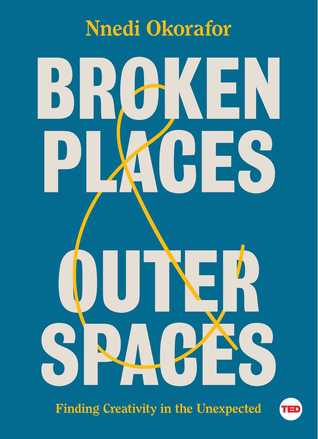They’re striking when they gather in a pack, but the TED books usually leave me wanting more. This is also true for me when it comes to Nnedi Okorafor’s contribution, based on her November 2017 TED Talk, “Sci-Fi Stories that Imagine a Future Africa”.
For those readers who only know Nnedi Okorafor through her fiction, however, this story does bring an interesting dimension to how she conceives of agency and powerlessness in her stories. The process she undergoes, to regain her health, is a trial but—like many challenges—travelling through difficult territory can lead to another kind of homeland.
Her paralysis and recovery not only created the opportunity for her to read more, she also discovered writers whose works she hadn’t previously enjoyed. The potential to tell different kinds of stories led her to query the texts in a different way.
Like this: “Could it be that Mary wrote Frankenstein as a way of facing her pain and fears? That she produced something so great and beyond herself from the grief she suffered? If this is true, then not only did Mary Shelley have her own ‘clay lady’ (Frankenstein’s monster), but an entire genre of literature (science fiction) was launched by the Breaking.”
Later, a friend encouraged her to take a creative writing class. Which also turned out to be a formative experience: “That class aligned all the planets scattered about my shattered universe. As I sat there listening and learning and eventually writing, everything came into focus. It was my Big Bang. My singularity. I finally heard my calling.”
Being introduced to a quantity and variety of writing styles opened up unsuspected possibilities for her, but one other formative experience awaited: “My paralysis and recovery led me to writing, but it would take an additional journey, a journey through my ancestral home of Nigeria, for me to meet and bond with an African-rooted form of science fiction.”
From here, readers can immediately recognize the connection between her personal and creative experience and their impact on her writing. And readers can learn the distinction between ‘Africanfuturism’ and ‘Afrofuturism’:
“Most traditional science fiction depicts a white world where I was not able to freely exist. But in the science fiction of what I’ve come to call ‘Africanfuturism’ (which is somewhat similar to Afrofuturism, but is specifically and more directly rooted in African culture, history, mythology, and perspective, where the center is non-Western), my characters inhabit worlds in which I can fight, play, invent, run, leap, and fly.”
As a tale of personal exploration and discovery, Broken Places & Outer Spaces is a succinct and well-told story. The ways in which writing can emerge, through different aspects of our selves, is something with which many writers can relate. And the ways in which struggle can culminate in articulating truths not only relatable but admirable and inspiring:
“The struggle that I sublimate through all my writing has been in my actively, willingly facing, breaking, and fusing my American and Nigerian cultures into what many of us call ‘Naijamerican’ (‘Naija’ is Nigerian slang for ‘Nigerian’ or ‘Nigeria’). And it has been in my learning to live with and embrace my strange crippled body.”
It takes more than nine minutes to read the book (but it’s barely a hundred pages, so not THAT many more), so you might rather watch. And bank your extra minutes to read her fiction. Or write your own.
Good stuff for readers, alright stuff for writers.
Okorafor, Nnedi. Broken Places & Outer Spaces. NY: Simon&Schuster-TED Books, 2019.

